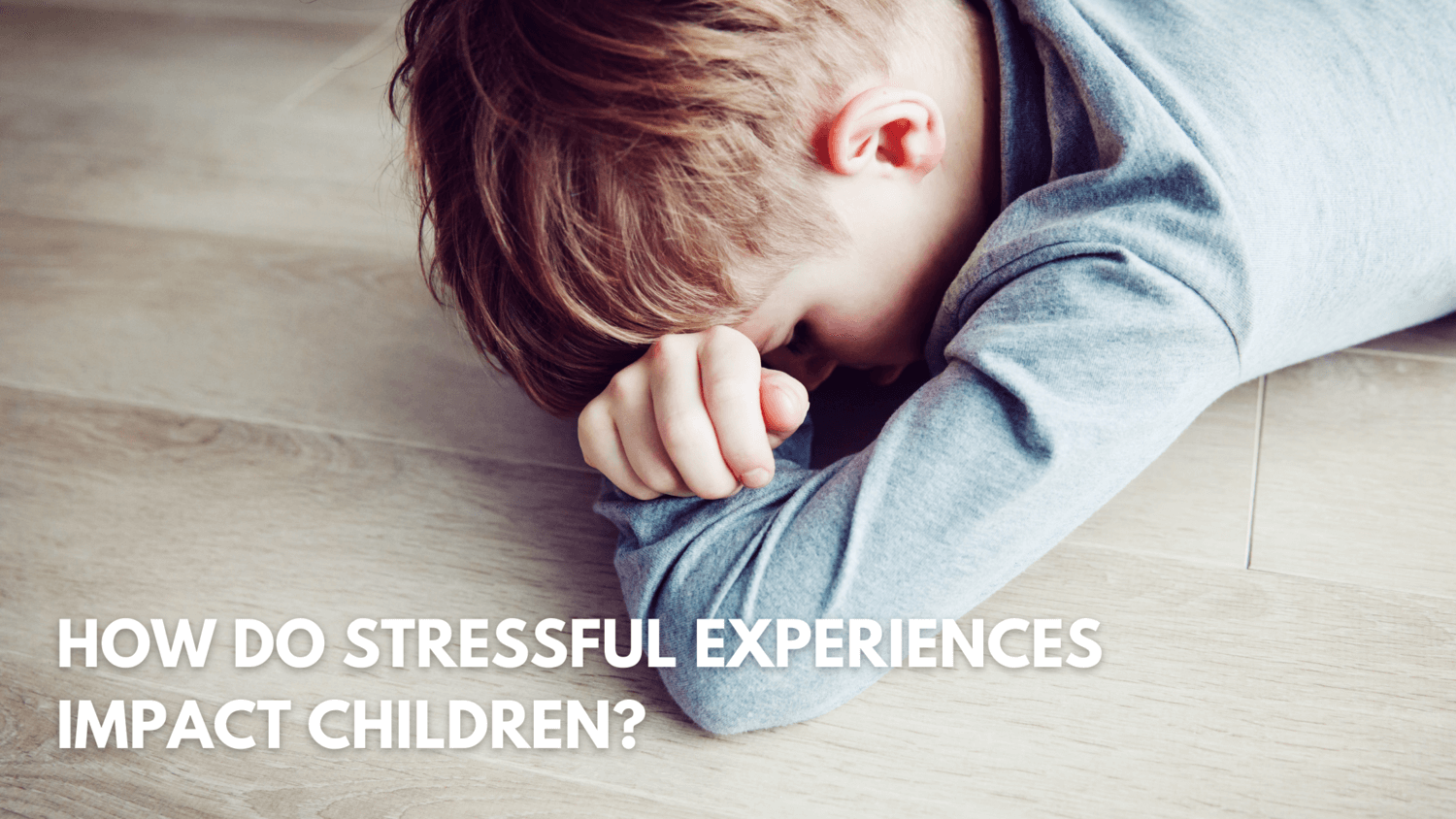Written by Andrea Fields, M.A. Psychology Ph.D. Student at Columbia University
Stress and development.
Stressful experiences are unfortunately quite common in our lives, and it feels like increasingly so in today’s world. Importantly, exposure to stressors can have a number of negative influences on our brains, bodies, and behavior. Past research has shown that like adults, young children are impacted by stress, demonstrating greater behavioral dysregulation following exposure to both extreme stressors (like exposure to natural disasters, war zones, etc.) and even more regularly occurring, stressful life events (like changes in familial financial status, illness, etc.). While adults may readily understand the potential consequences of these experiences, how do young children learn about and react to the stressful events they face?
How do children learn about their environments?
Perhaps unsurprisingly, children spend much of their lives learning from their parents. This is particularly true in early life when children are highly dependent on their parents to fulfill their basic needs. Starting in infancy, children look towards their parents to determine how to react to new and ambiguous situations. Even something as minor as a parent’s happy or fearful facial expression can change the way a child behaves towards certain objects or scenarios (Sorce et al., 1985). This suggests that parental cues can be powerful guides for young children. In particular, parental anxiety may be especially influential as an adult’s fearful behavior is often a readily visible signal for young children.
What were the goals of this study?
In order to further investigate these questions, our recent study explored the association between stressful experiences, and parent and child behavior (Fields et al., 2020). Specifically, we were interested in examining whether parental behavior served as a bridge between stressful experiences and children’s outcomes. Here, we focused on the impact of common household stressors that children may be regularly exposed to such as a parent losing their job, the illness of a loved one, familial arguments, etc. These everyday events may seem innocuous but can still cause strain on our daily lives.
What were the findings of this study?
Our findings indicated that experiencing common, household stressors were associated with behavioral dysregulation in young children. Specifically, greater exposure to these types of events was linked to higher anxiety symptoms (nervousness, fears, and worries) and externalizing problems (aggression, hyperactivity, and opposition) in 2 to 6 years olds. However, these effects were mediated by parent anxiety, meaning that the connection between stress exposure and child behavior was in part explained by how anxiously parents behaved. Parent anxiety was also linked to changes in children’s stress hormones. Greater parental anxiety was associated with higher levels of child cortisol, the body’s primary stress hormone. This indicates that parental anxiety may not only influence children’s behavior but also their body’s biological stress response system.
We also investigated the types of experiences that families encountered, separating them into stressors that most directly impacted parents (changes in parental employment, financial status, etc.), and those that most directly impacted children (arguments with siblings, changing schools, etc.). Interestingly we found that only the parent-directed stressors, and not the child-directed stressors, were associated with greater behavioral dysregulation in kids. This suggests that children may be more sensitive to the stressful experiences their parents face, than those they face themselves.
Take home message.
This study suggests that stress may not have a direct influence on young children, but instead might lead to changes in children’s behavior depending on how parents respond to their own stressful experiences. Given these findings, what can parents do to ensure their children are protected from the negative effects of stress? We know that children are highly tuned in to their parents’ behavior, particularly during difficult times. When stressful events occur, it may be tough for parents who juggle many responsibilities to focus on themselves and practice self-care. However, it turns out that prioritizing their own health and wellbeing is one way in which parents may be able to best support themselves and their families.
Meet Andrea

Andrea Fields is a fourth-year Ph.D. student in the Developmental Affective Neuroscience Lab within the Department of Psychology at Columbia University. Prior to starting graduate school, she graduated from Johns Hopkins University with a B.A. in Biology and Writing Seminars. Andrea’s research focuses on how caregiving experiences influence children’s behavior and the developing brain. More specifically, her work investigates how children learn from and adapt to their early caregiving environments, particularly in the context of prenatal and postnatal stress.



